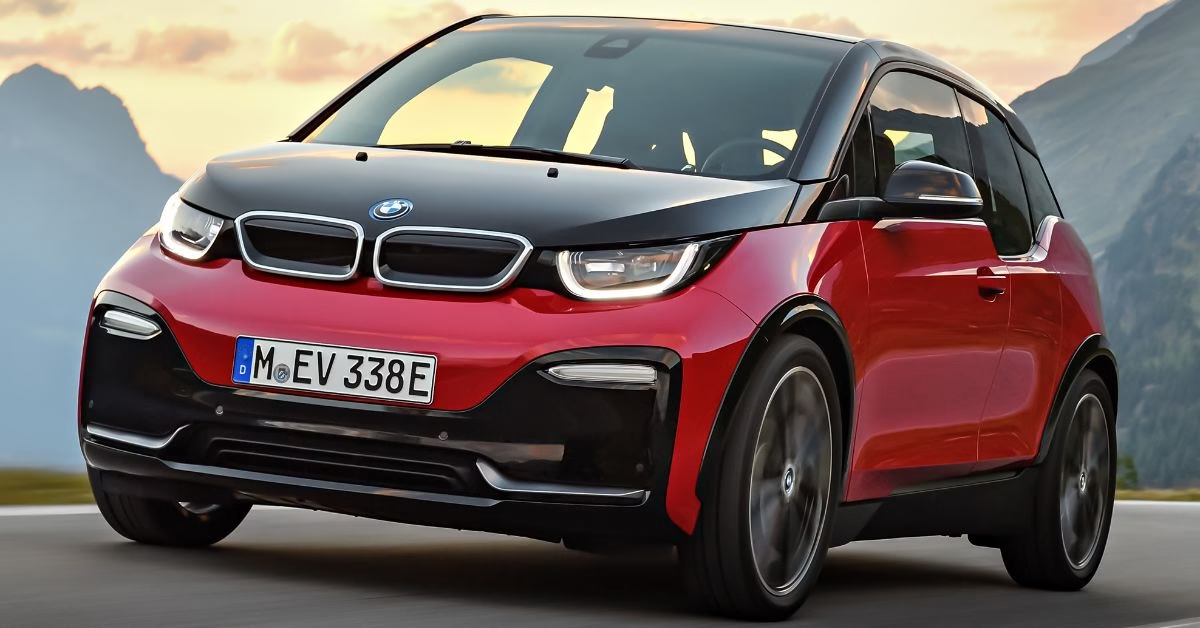For college students, owning a car that’s affordable to run, easy to maintain, and simple to park is essential. Electric vehicles meet those needs, especially models like the Nissan Leaf, Chevrolet Bolt EV, and Fiat 500e, which combine low purchase prices with minimal charging costs.
Most used EVs under $20,000 offer enough range for daily commutes and weekend errands without the upkeep of gas-powered cars. As campuses expand charging access, small cheap electric cars have become a practical and economical choice.
Below, we break down the most affordable electric cars worth considering in 2025, including compact hatches and entry-level electric SUVs.
10. Fiat 500e: 2018–2019
Avg. Used Price: $5,000–10,000
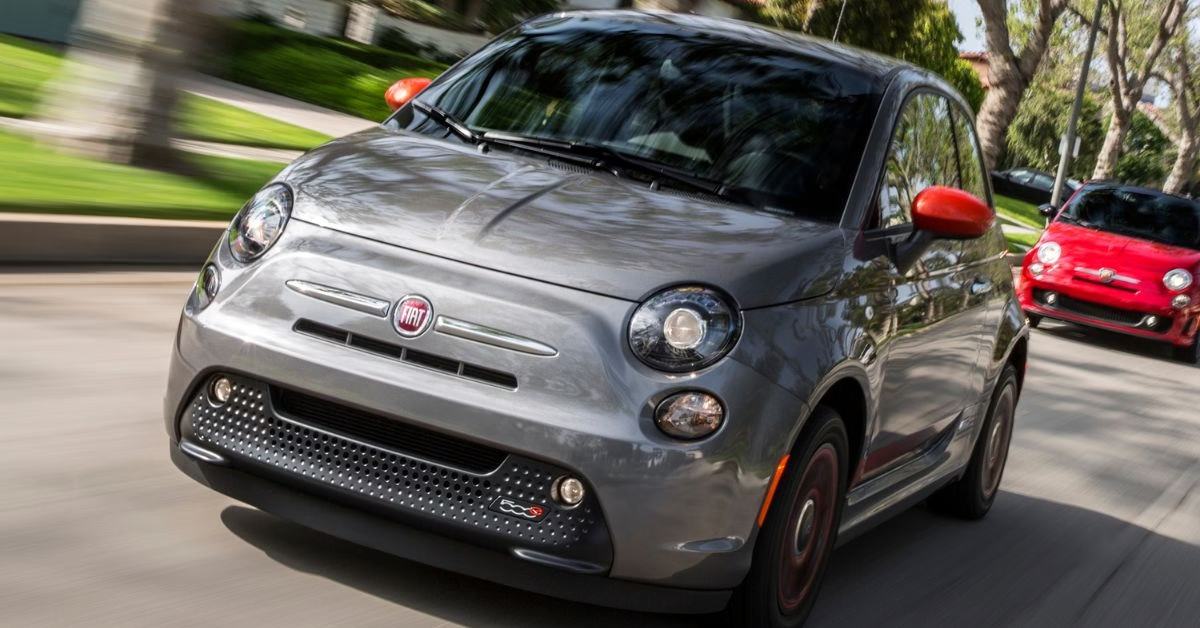
The Fiat 500e was developed as a compliance car for California and Oregon, sold between 2013 and 2019 with limited nationwide availability. It uses a 24-kWh lithium-ion battery paired with an 83 kW (111 hp) electric motor producing 147 lb-ft of torque. As a small cheap electric car, the 500e suits students who live on or near campus and want a stylish, compact daily driver.
Range is EPA-rated at just 84 miles, but real-world usage in urban settings often sees slightly higher figures due to regenerative braking and low-speed efficiency. Despite its limited range, the 500e’s compact dimensions, instant torque, and light curb weight (around 2,980 lbs). Most examples support Level 2 charging at 6.6 kW, allowing a full charge in about four hours, although DC fast charging is not available.
9. Kia Soul EV: 2015–2017
Avg. Used Price: $6,000–10,000
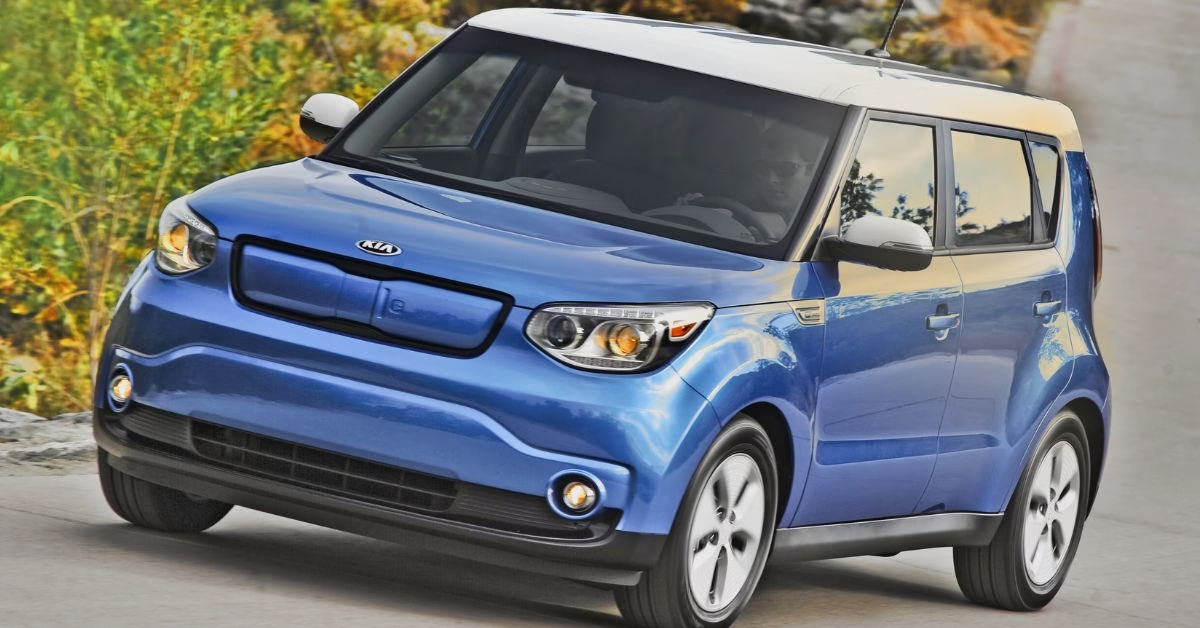
The first-generation Kia Soul EV, sold in the U.S. from 2015 to 2019, combines boxy utility with approachable pricing and proven reliability. It uses a 27-kWh lithium-ion polymer battery in early models (2015–2017), upgraded to 30 kWh for 2018–2019. Power is delivered through an 81.4 kW (109 hp) electric motor producing 210 lb-ft of torque, routed to the front wheels via a single-speed reduction gear.
EPA range is rated at 93 miles for the 27-kWh version and 111 miles for the 30-kWh variant. While these figures limit highway practicality, the Soul EV’s tall roofline, upright seating, and 18.8 cubic feet of cargo space behind the second row make it a functional choice for students who carry equipment, groceries, or gear. Rear seat room is generous compared to other subcompact EVs, which also improves day-to-day usability.
8. Ford Focus Electric: 2012–2016
Avg. Used Price: $7,000–12,000
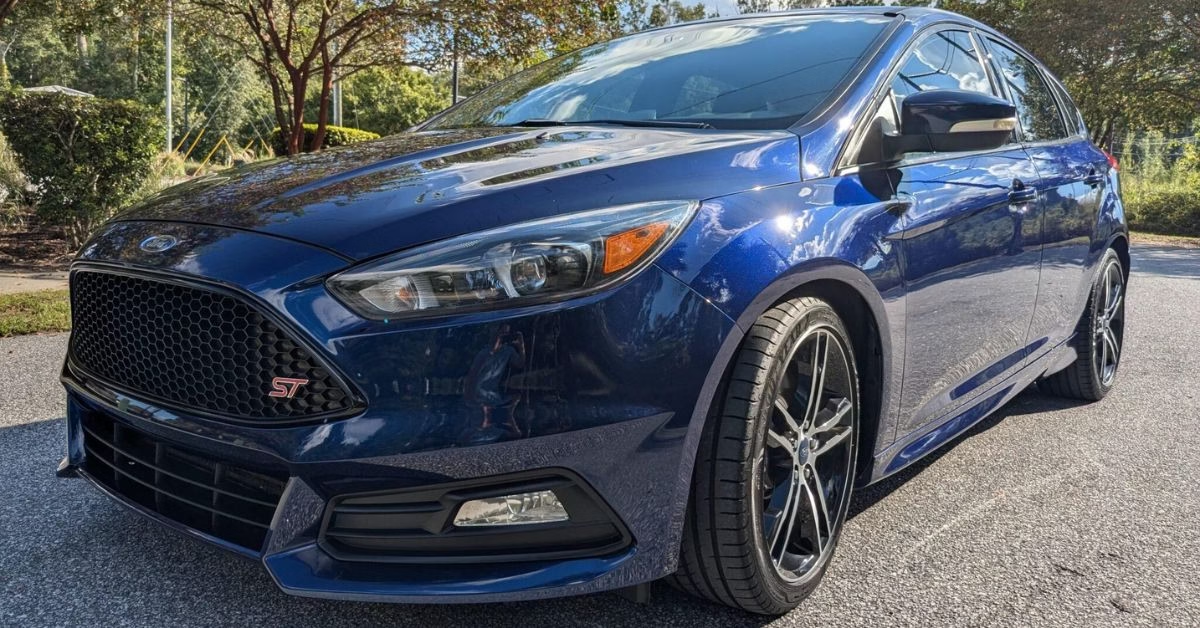
The Ford Focus Electric was produced from 2012 to 2018 as a battery-electric variant of the standard Focus hatchback, sharing its chassis and interior with the gasoline model. Early versions use a 23-kWh liquid-cooled lithium-ion battery, upgraded to 33.5 kWh for the 2017 and 2018 model years. Output is rated at 107 kW (143 hp) and 184 lb-ft of torque, delivered through a single-speed direct-drive transmission to the front wheels.
Pre-facelift models (2012–2016) offer just 76 miles of EPA-rated range, while the final two years stretch that to 115 miles, putting the newer versions within realistic commuter territory. Despite lacking a purpose-built EV platform, the Focus Electric retains the solid driving dynamics of the standard Focus, with tight handling and decent ride quality. Trunk space is compromised slightly by the battery’s placement, but folding rear seats restore practicality when needed.
7. Volkswagen e-Golf: 2015–2018
Avg. Used Price: $8,000–14,000
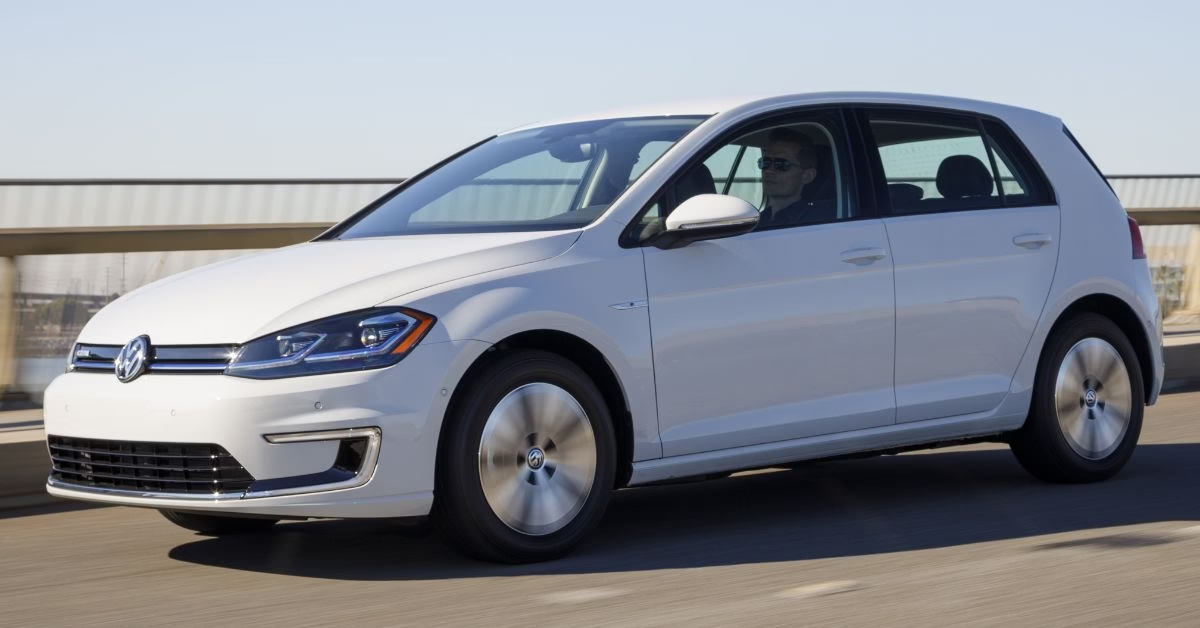
The Volkswagen e-Golf launched in the U.S. in 2015 as an electric variant of the Mk7 Golf, offering familiar dynamics and build quality in a fully electric package. Early models from 2015–2016 use a 24.2 kWh battery delivering 83 miles of EPA-rated range, while 2017–2019 versions received a significant upgrade to a 35.8 kWh pack with 125 miles of range. Power output also increased from 115 hp to 134 hp, with torque holding steady at 214 lb-ft.
Unlike many small EVs in its class, the e-Golf feels planted and refined, using the same MQB platform as its gasoline counterpart. Steering is precise, suspension tuning is balanced, and cabin materials match the quality expected from Volkswagen in the mid-2010s. Interior volume is nearly identical to the standard Golf, with 22.8 cubic feet of cargo space and generous front and rear legroom for a compact hatch.
6. Nissan Leaf: 2015–2018
Avg. Used Price: $8,000–17,000
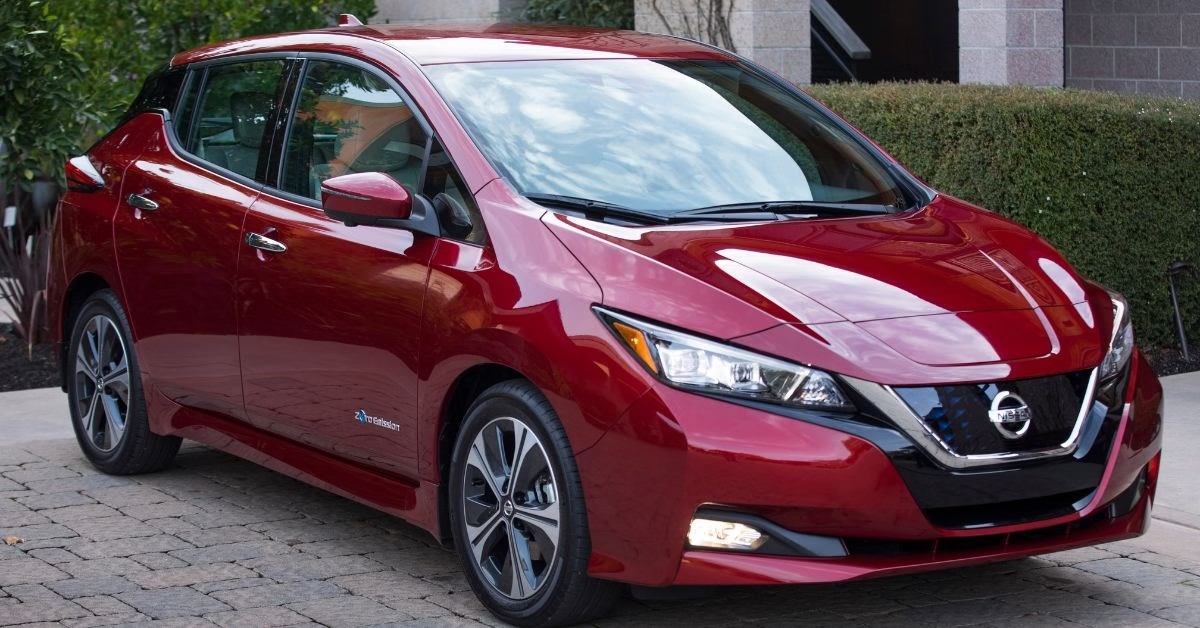
The Nissan Leaf debuted in 2011 as the world’s first mass-produced electric car and remains one of the most affordable used EVs on the market. First-generation models (2011–2017) use a 24-kWh battery with 73–84 miles of EPA range, though many pre-2015 examples suffer noticeable degradation due to passive air cooling. From 2016 onward, Nissan introduced a 30-kWh option with up to 107 miles, and in 2018, the second-generation Leaf launched with a 40-kWh pack rated at 151 miles.
The electric motor delivers 107 hp and 187 lb-ft of torque in early models, upgraded to 147 hp in the second generation. Acceleration is smooth and quiet, and while the chassis prioritizes comfort over agility, the Leaf remains easy to maneuver with a tight turning radius and low center of gravity. Later trims include useful tech like ProPILOT Assist, Apple CarPlay, and a 6.6 kW onboard charger. DC fast charging via CHAdeMO is available on SV and SL trims or via the Quick Charge package.
5. BMW i3: 2014–2018
Avg. Used Price: $10,000–17,000
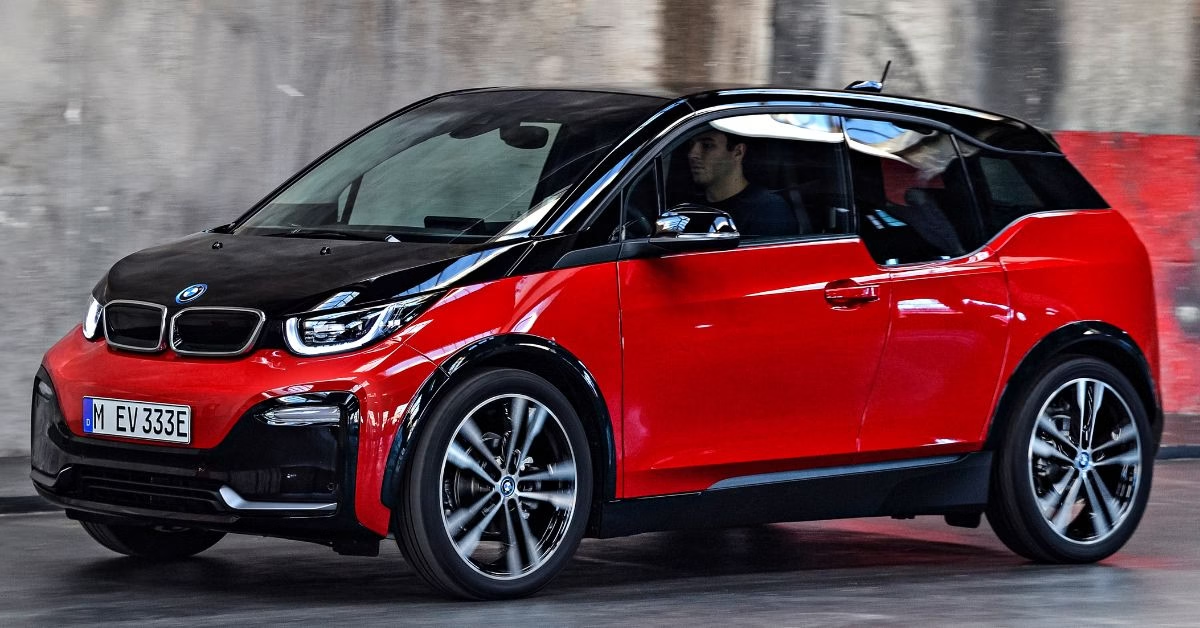
Sold from 2014 to 2021, the i3 was engineered from the ground up as an electric city car, using a skateboard-style platform and a rear-mounted electric motor. Early BEV models (2014–2016) came with a 22-kWh battery delivering 81 miles of EPA-rated range, while 2017–2018 versions increased capacity to 33.2 kWh and 114 miles. Models from 2019 onward, which now dip below $20,000 on the used market, feature a 42.2 kWh pack with 153 miles of range.
Output ranges from 170 hp and 184 lb-ft of torque in base models to 181 hp in the i3s variant. Weighing around 2,900–3,100 lbs, depending on configuration, the i3 is agile in city traffic, with instant throttle response and a tight 32.3-foot turning circle. Most used models include the optional Range Extender (REX), a 647 cc two-cylinder gasoline engine mounted beside the rear motor. It doesn’t power the wheels directly but maintains battery charge when it drops below 6 percent, extending total range to around 180 miles.
4. Hyundai Ioniq Electric: 2017–2020
Avg. Used Price: $13,000–18,000
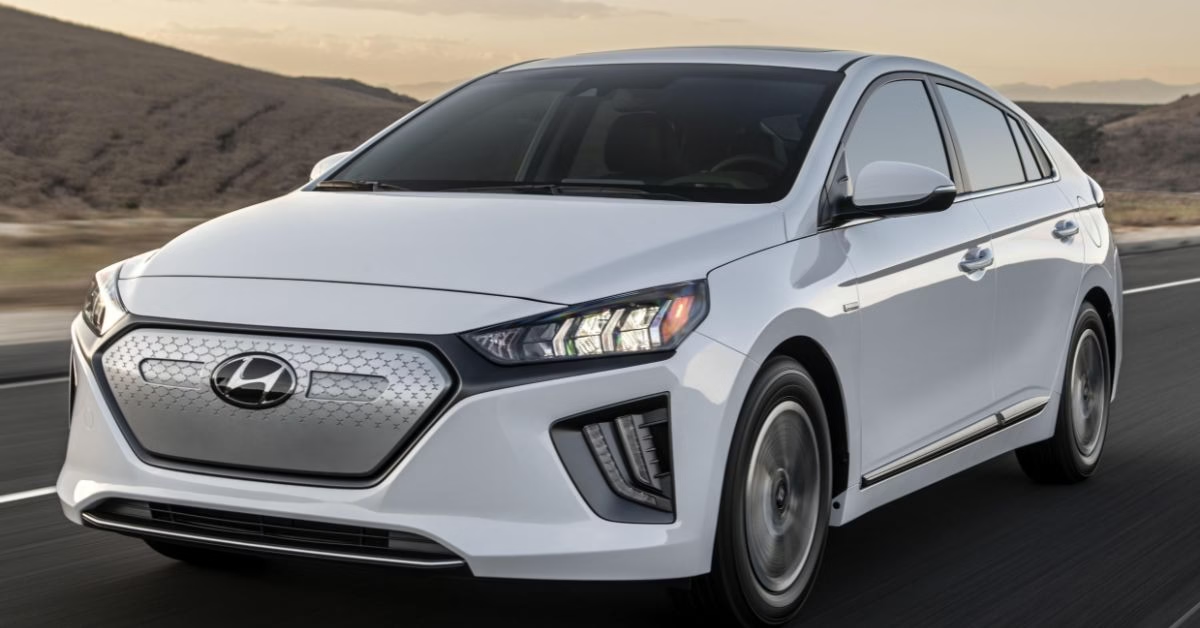
The Hyundai Ioniq Electric is one of the most efficient EVs ever sold in the U.S. Early models from 2017 to 2019 come with a 28-kWh battery and an EPA-rated range of 124 miles. These are the versions most commonly priced between $12,000 and $17,000. In 2020, Hyundai upgraded the battery to 38.3 kWh and bumped the range to 170 miles, but these models typically sit above the $20,000 mark.
Its 88 kW (118 hp) motor is modest but responsive in city driving, and the Ioniq’s class-leading efficiency—rated at 136 MPGe—beats both the Tesla Model 3 Standard Range and BMW i3 from the same period. Regenerative braking paddles allow you to tune deceleration strength, making one-pedal driving possible in traffic. The Ioniq supports Level 2 charging at 6.6 kW and can fast charge via CCS at up to 100 kW, delivering 80 percent charge in about 30 minutes.
3. Chevrolet Bolt EV: 2017–2019
Avg. Used Price: $14,000–18,000
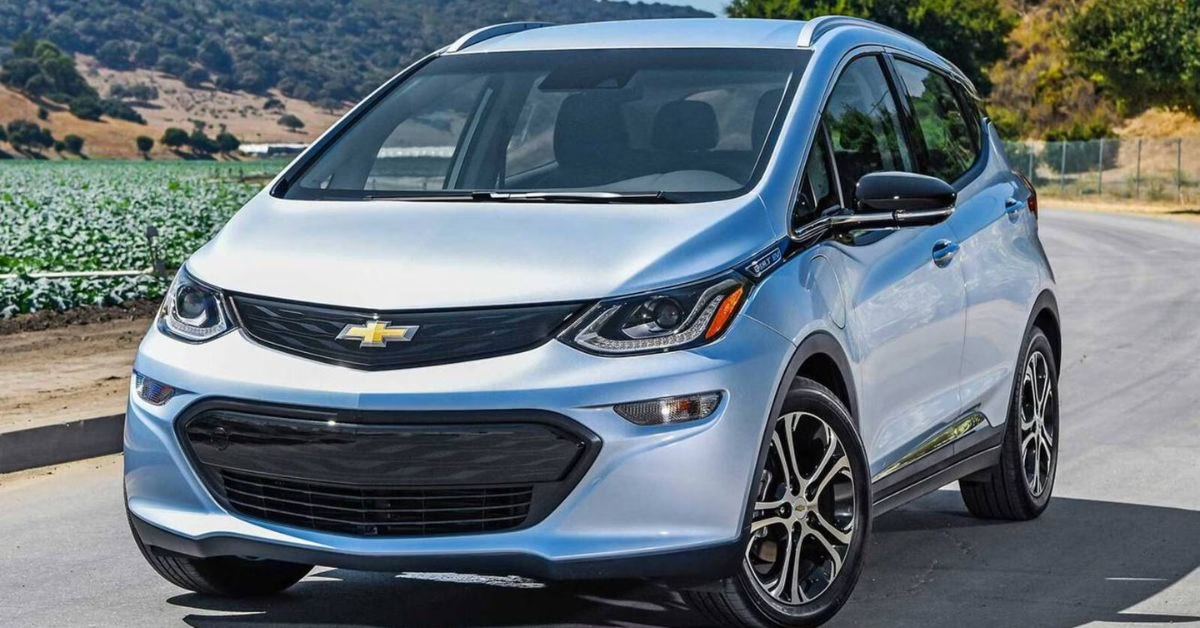
Early Chevrolet Bolt EVs from 2017 to 2019 deliver 238 miles of EPA-rated range using a 60 kWh LG Chem battery and a 200 hp front-mounted motor with 266 lb-ft of torque. That drivetrain gives the Bolt a surprising pace for a compact EV, with 0–60 mph in under 6.5 seconds, which is quicker than many non-hybrid hatchbacks in the same price range.
Cargo volume hits 56.6 cubic feet with the rear seats folded, outclassing most subcompact crossovers and making it ideal for students who need space for dorm hauls or weekend travel. DC fast charging is standard, offering roughly 100 miles of range in 30 minutes on a 50 kW charger. Battery recall concerns have been largely resolved, with GM replacing affected packs under warranty, effectively refreshing many used models with new battery units and resetting degradation cycles.
2. Mini Cooper SE: 2020–2022
Avg. Used Price: $15,000–20,000
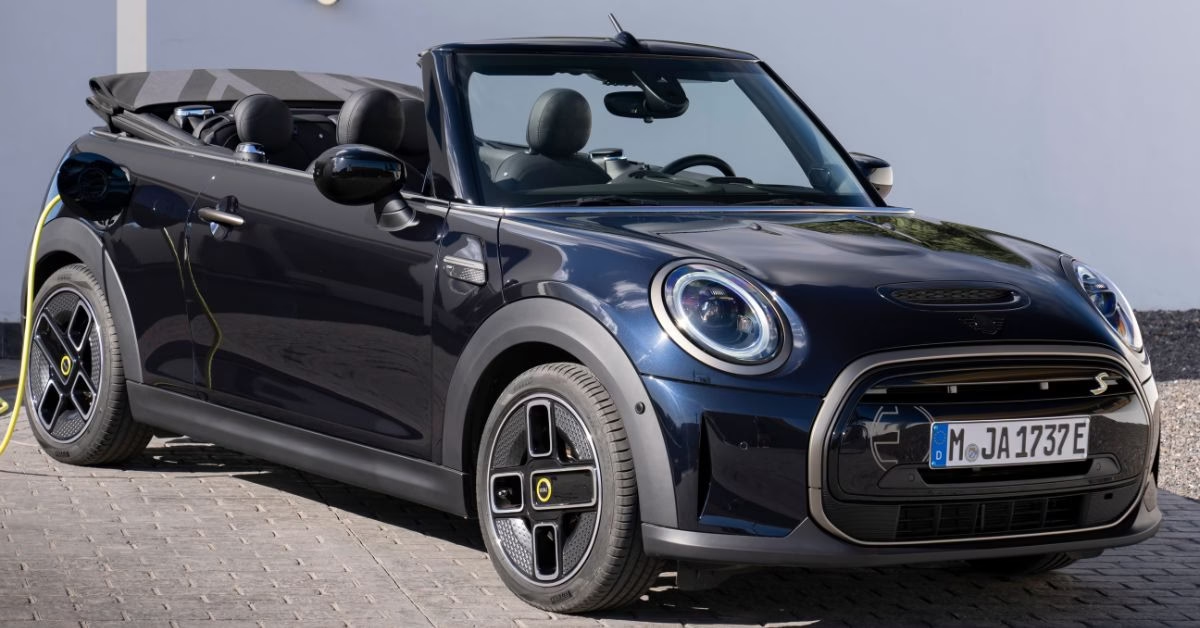
The Mini Cooper SE uses a 32.6 kWh battery paired with a 181 hp front motor delivering 199 lb-ft of torque. The EPA-rated range is 110 miles, which suits short commutes and urban driving but limits longer highway trips. Despite its compact size, the SE accelerates from 0–60 mph in 6.9 seconds, matching many compact gas hatchbacks.
Its low center of gravity and stiff chassis create sharp, predictable handling, while regenerative braking is adjustable and strong enough for near one-pedal driving. Interior quality is high for the price, with BMW-sourced infotainment and materials. This small cheap electric car delivers a premium cabin and heritage styling. Most used models come well-equipped with heated seats, Apple CarPlay, and active safety features. Battery cooling is passive, but degradation has been minimal across early model years.
1. Chevrolet Bolt EUV: 2022
Avg. Used Price: $17,000–20,000
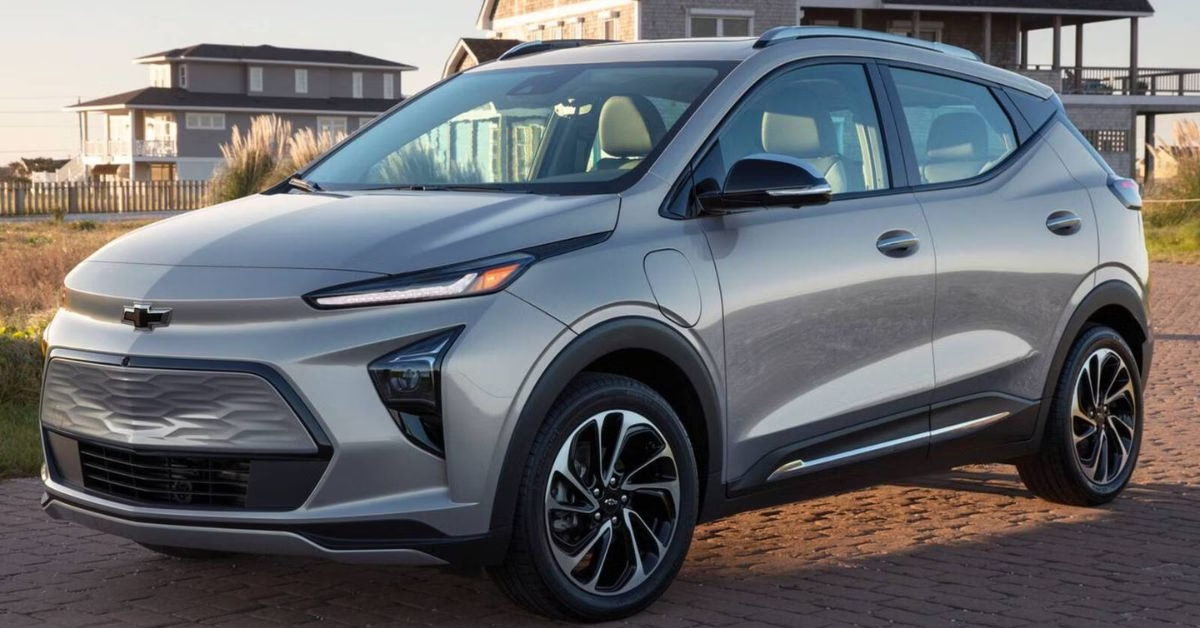
The 2022 Bolt EUV shares its drivetrain with the standard Bolt EV, delivering 200 hp and 266 lb-ft of torque from a front-mounted motor powered by a 65-kWh battery. The EPA-estimated range is 247 miles, with real-world figures often reaching 230–240 miles depending on climate and driving habits. It adds 6 inches in length over the regular Bolt, improving rear legroom and comfort for passengers.
As one of the cheapest electric SUVs available, the Bolt EUV gives students SUV-like practicality without the usual high EV price tag. Cargo space stands at 56.9 cubic feet with seats folded. DC fast charging provides up to 95 miles in 30 minutes on a 55-kW charger. Most models come standard with Super Cruise hardware (though activation requires a subscription) and include wireless CarPlay, heated seats, and advanced driver assistance. GM addressed battery recall risks before delivery, so 2022 models ship with upgraded LG battery packs.

